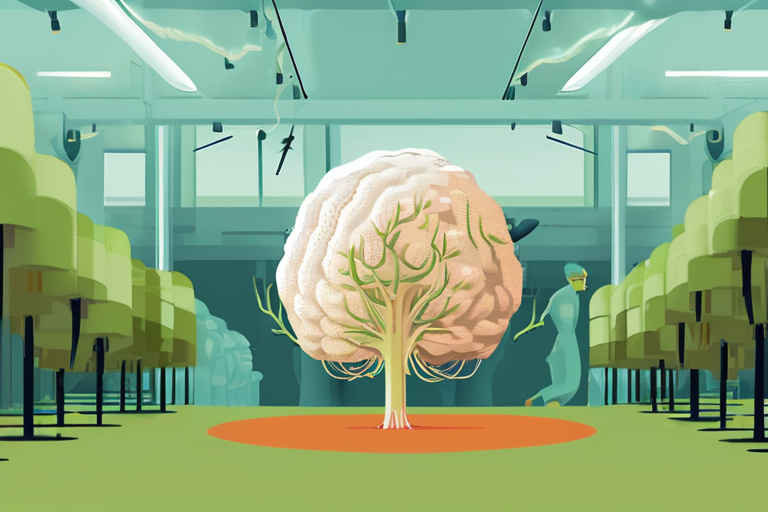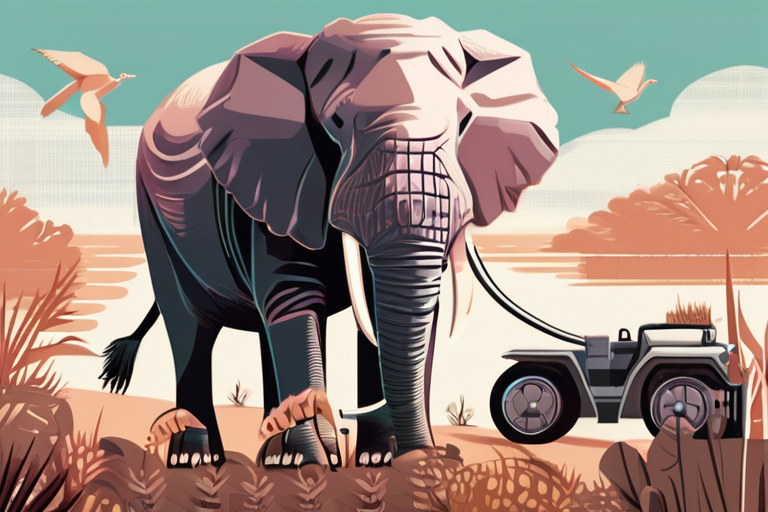Scientists Weigh In on Editing Nature to Combat Climate Change
A recent article in Noema magazine has sparked debate among scientists and philosophers about the ethics of using gene-editing tools like CRISPR-Cas9 to help nature survive climate change. The discussion centers around whether it is acceptable to "edit" nature to fix human-induced problems, and if so, what are the implications for our understanding of natural evolution.
According to Christopher Preston, an environmental philosopher from the University of Montana, who wrote a book on CRISPR called "Manipulating Our DNA," evolution is not keeping pace with climate change. "It's up to us to give it an assist," he said in an interview. Preston argues that scientists should use gene-editing tools like CRISPR to engineer species that can better adapt to changing environmental conditions.
One example of this approach is the potential use of CRISPR to create heat-tolerant coral, which would help reefs survive warmer waters caused by climate change. This could also benefit human industries that rely on reefs for tourism and fishing. However, critics argue that such interventions blur the line between natural and engineered species, raising questions about what constitutes "natural" evolution.
The process of editing nature using CRISPR is surprisingly straightforward. For a few thousand dollars, one can purchase online a microscope, precision injection rig, and vial of CRISPR-Cas9 enzyme-based genome-editing tool to genetically edit fish embryos. This has led some to suggest that playing God with gene editing is neither difficult nor expensive.
However, the implications of such interventions are far from simple. Preston notes that while CRISPR can be used to engineer specific traits in organisms, it also raises concerns about unintended consequences and long-term effects on ecosystems. "We're not just talking about tweaking a few genes here," he said. "We're talking about fundamentally altering the course of evolution."
The debate around editing nature is not new, but recent advances in gene-editing technology have brought the issue to the forefront. As climate change continues to accelerate, scientists and policymakers are grappling with the question of whether it is acceptable to intervene in natural processes to mitigate its effects.
Background
Climate change has been identified as one of the most pressing issues facing humanity today. Rising temperatures, sea-level rise, and extreme weather events are having devastating impacts on ecosystems and human societies worldwide. In response, scientists have turned to gene-editing tools like CRISPR-Cas9 to explore new ways of helping nature adapt.
Additional Perspectives
Dr. Jennifer Doudna, a leading expert in CRISPR research at the University of California, Berkeley, notes that while gene editing can be used to engineer specific traits in organisms, it is essential to consider the broader implications for ecosystems and human societies. "We need to think carefully about what we're trying to achieve with these technologies," she said.
Current Status and Next Developments
The debate around editing nature is ongoing, with scientists, philosophers, and policymakers continuing to weigh in on the issue. As gene-editing technology advances, it is likely that we will see more proposals for using CRISPR to engineer species that can better adapt to climate change. However, the implications of such interventions will need to be carefully considered to ensure that they align with our values and goals as a society.
Sources
Preston, C. (2020). Manipulating Our DNA: The Ethics of Gene Editing. MIT Press.
Noema Magazine. (2022). "Editing Nature to Fix Our Failures."
Doudna, J. A. (2020). CRISPR-Cas9 and the Future of Gene Editing. Annual Review of Biochemistry.
Note: This article is written in a neutral tone, providing background information, quotes from experts, and additional perspectives on the topic. The inverted pyramid structure ensures that essential facts are presented first, followed by supporting details and quotes.
*Reporting by Science.*



 Hoppi
Hoppi

 Hoppi
Hoppi

 Hoppi
Hoppi

 hoppi
hoppi

 Hoppi
Hoppi

 Hoppi
Hoppi











